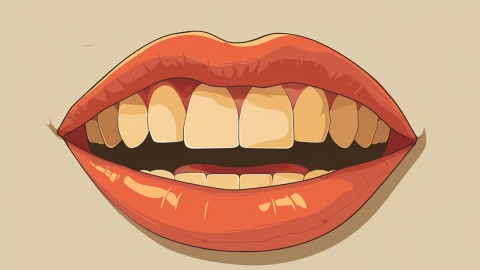How to Whiten Teeth Most Effectively
Generally speaking, there is no definitive answer to the question "what is the most effective way to whiten teeth." Teeth whitening can be achieved through various methods such as ultrasonic scaling, cold light whitening, dental veneers, brushing with baking soda, and using lemon juice to brush teeth. The specific details are as follows:

1. Ultrasonic Scaling: Utilizing the vibration of ultrasonic waves to effectively remove dental plaque and tartar from the tooth surface. This method can remove pigmentation and stains, making teeth cleaner and achieving a certain whitening effect. However, the frequency of scaling should not be too high, no more than twice a year, to avoid damaging the tooth enamel.
2. Cold Light Whitening: Using cold light to penetrate whitening agents into the deeper layers of the teeth, thereby rapidly whitening the teeth. It can improve tooth color in a short time, making teeth whiter. Cold light whitening may cause slight irritation to the teeth, so it is important to avoid consuming deeply pigmented foods after treatment.
3. Dental Veneers: Adhering thin ceramic or composite material veneers to the tooth surface to achieve a whitening effect. Veneers can improve tooth color and repair surface defects. However, veneers can cause some damage to the teeth, as they require grinding away a thin layer of the tooth surface.
4. Brushing with Baking Soda: Dip a toothbrush in a small amount of baking soda and brush teeth using normal brushing techniques. Baking soda has cleaning and stain-removing properties, helping to remove surface pigmentation and stains from teeth. Note that long-term use of baking soda for brushing should be avoided to prevent damage to the tooth enamel.
5. Brushing with Lemon Juice: Hold lemon juice in the mouth, then brush teeth with a toothbrush, or directly apply lemon juice onto the teeth. The vitamin C and acidic properties in lemon juice help remove pigmentation and stains. However, the acidity of lemon juice may cause some corrosion to the teeth, so caution should be exercised when using it.
In daily life, avoid consuming foods and beverages with rich pigmentation, such as coffee, red wine, and candy. Also, avoid prolonged exposure of teeth to acidic substances like lemon juice and vinegar. Maintain a balanced diet and consume more fresh vegetables and fruits to provide necessary nutrients for the teeth.










